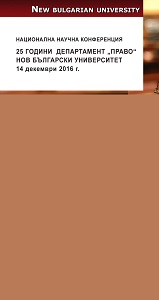
We kindly inform you that, as long as the subject affiliation of our 300.000+ articles is in progress, you might get unsufficient or no results on your third level or second level search. In this case, please broaden your search criteria.

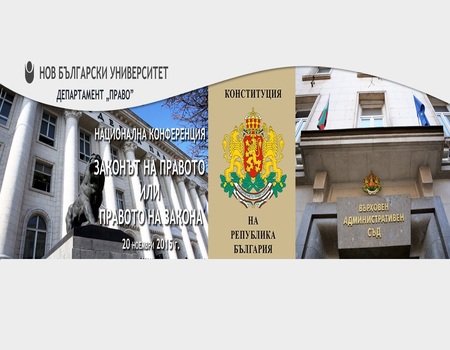
We have to share with regret that on August 5, 2016, Professor Bogdan Bogdanov, President and founder of New Bulgarian University has left us. He was an impressive scientist with rich literary heritage. Prof. Bogdanov was a great visionary. In the years of transition from totalitarian regimeto democracy he was not wasting his time in vain politics, but rather put all his energy and made tremendous efforts in building higher education institution of a completely new type. He build a space to develop and share talent, knowledge and making. Let him rest in peace!
More...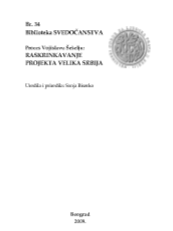
Početak suđenja Vojislavu Šešelju u Haškom tribunalu (7. novembar 2007), u većini medija u Srbiji najavljivan je i iščekivan pre svega kao prvorazredni medijski događaj, spektakl, odličan performans u kome glavnu ulogu ima 'naš čovek" , uz to pravnik, i koji će, sasvim izvesno, uspešno da "privede pravdi" haške tužitelje. Šešelj je optužen za zločine nad Muslimanima i Hrvatima u Hrvatskoj, Vojvodini i BiH 1991-93, koji su počinjeni u okviru "zajedničkog zločinačkog poduhvata" čiji je cilj bilo trajno uklanjanje nesrba i stvaranje proširene srpske države. Adrenalin Šešelja, oslobođen nakon 4,5 godina iščekivanja suđenja i potom usmeren koliko na hašku sudnicu, toliko i na srpsku javnost, naišao je, sa retkim izuzecima, na dobrodošlicu medija u Srbiji koji su se (posebno tabloidi) nadmetali u variranju Šešeljevih "dosetki" i divljenju njegovoj "retorici". Suđenje Šešelju jeste, po svojoj prirodi, veliki medijski događaj i nije nerazumljivo što mu je dat veliki publicitet, ili što je na samom početku tog suđenja drugi program RTS-a bio najgledaniji (čak gledaniji od rialiti šoa "Veliki brat"), što su svi mediji zabeležili. Obaveza medija jeste da informiše javnost, ali je problem u tome što je izveštaje sa suđenja Šešelju, veliki deo štampe u Srbiji prenosila ili "ravno", bez objašnjenja i ograda od kvalifikacija koje je on iznosio na suđenju i bez podsećanja na ideologiju optuženog i njegove stranke (SRS), ili senzacionalistički, uz opremanje izveštaja tako da se sugeriše nadmoć Šešelja i inferiornost Tribunala. U domišljanju naslova, tabloidi su često koristili sportsku terminologiju u kojoj je Šešelj, naravno, pobednik.
More...
Suđenje Vojislavu Šešelju je počelo dvodnevnom razmenom uvodnih reči tužiteljke Kristine Dal i optuženog. Ovi višesatni monolozi, čija je funkcija da najave tok procesa, naznače pozicije strana i osvetle njihove strategije, prikazani su naposletku na Drugom programu RTS-a. Prvog dana snimak je pratilo, kažu, pola miliona ljudi, drugog nešto manje od četiri stotine hiljada. Ukoliko su ove procene tačne, biće da je suđenje pred ekrane privuklo četiri puta više građana Srbije nego što je potpisalo zahtev za njegovo direktno prenošenje. Teško je reći koliko su gledaoci zaista bili zakovani za televizore, a gotovo je nemoguće proceniti šta su pri tom mislili, osećali i saznali. Izvesno je, međutim, da je Vojislav Šešelj, osokoljen ovom publikom, nastojao da odgovori njenim očekivanjima. "Ja se obraćam publici u Srbiji", eksplicirao je pred sam početak suđenja. "A Zapad me uopšte ne interesuje. Sa Zapada je kroz vekove samo zlo dolazilo Srbiji."
More...
Naš novinar Jovan Dulović ima dugačku historiju pomaganja Haškom tribunalu i Haškom tužilaštvu u njihovom traganju za istinom o krvavim ratnim godinama u bivšoj Jugoslaviji: Vukovar, Lovas, Zvornik... Prvi kontakt s haškim istražiteljima – na njihovu inicijativu – uspostavljen je još 1992. godine, kad još nitko nije optužen za zločine u Vukovaru i Lovasu (još se ne spominje ni "vukovarska trojka", ni Slobodan Milošević koji će još godinama nakon toga biti "garant mira i stabilnosti na Balkanu"), zahvaljujući izvještajima koje je Dulović pisao s vukovarskog ratišta i tome što se početkom te godine saznalo za strašni masakr 200 hrvatskih ratnih zarobljenika na Ovčari kod Vukovara.
More...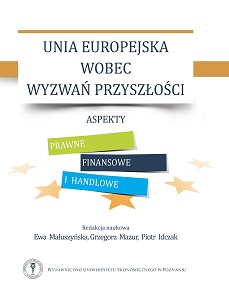
Mimo wielu podejmowanych prób nie udało się dotychczas ustanowić unijnego patentu. Autorka opisuje historię nieudanych prób i wskazuje przeszkody, które o tym zadecydowały. Charakteryzuje przyjęte rozwiązania częściowe i plany w tym zakresie.
More...
Większość analiz projektu europejskiego rozporządzenia o ochronie danych osobowych dotyczyła nowych rozwiązań prawnych w nim zawartych. Autor uzupełnia lukę polegającą na pominięciu prawnej oceny wyboru rozporządzenia jako instrumentu reformy ochrony danych osobowych w Unii Europejskiej.
More...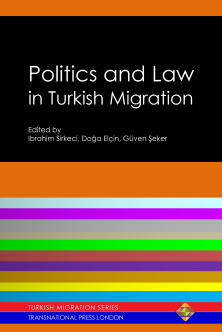
Although Turkey has been an important immigration and asylum country (see Kale, 2005; Kaya, 2009, 2012; Kirisci, 1996, 2002, 2003, 2007) as well as a transit county (Sahin-Mencutek, 2012) in the region, the legal infrastructure to deal with the migration subject has been somewhat poor . This field has been governed by piecemeal legislations, and this lack of primary legislation, which covers both rights and responsibilities has been indicated as one of the reasons for decreasing the level of protection given to refugees and asylum seekers (Amnesty International, 2009). When we come to 2011, it is possible to see a remarkable development in the field of asylum seekers, although negotiations with the EU remained in deadlock. In 2011, The Law on Foreigners and International Protection in Turkey (No. 6458) was drafted and it was approved by Parliament on 4 April 2013.1 This was an innovative movement in the history of Turkish migration policies because it was the first comprehensive law to cover both foreigners and those who need international protection.
More...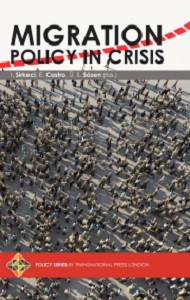
The European Union’s asylum and refugee policies have evoked as much vehement criticism from human rights activists as from media outlets – most expressly in 2015 and 2016, when the numbers of refugees crossing the EU’s external borders either in Greece and Italy or in Bulgari, and Hungary, reached their peak. There are various accounts of human rights violations at the EU’s external borders, and within national asylum systems. The same holds true for analyses addressing the EU’s asylum and refugee policies, the acts of its agencies, and decisions made by individual member states in terms of their compatibility with the European human rights regime.
More...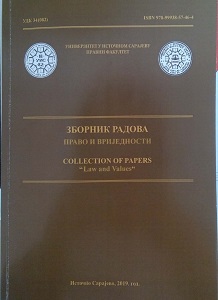
Convention Relating to the Status of Refugees sets out in Art. 1A(2) a refugee definition and it applies to all persons wishing to obtain a refugee status. There are some situations in determining refugee status that are specific to other cases. One such situation is related to refugee sur place. Refugee sur place are persons who voluntarily left their own country, but which, because of some subsequent events, have a well-founded fear that in the case of their return to the homeland, they will be subjected to persecution there. The cause of this fear can be objective changes in the country of origin, such as the coming of the dictatorial regime to the power. Besides, the fear of persecution can also be caused by the actions of the individuals during their stay abroad. A second specific situation regards to persons fleeing from the country of origin due to international or non-international armed conflicts that are being conducted in that country. The Convention on the Status of Refugees does not contain special provisions for persons leaving the country of origin due to armed conflict, which means that they can only obtain refugee status if they prove well-founded fear of persecution for any of the five reasons mentioned in Art. 1A of this Convention. General danger of an armed conflict is not enough to qualify for refugee status because this danger is the same for the entire population in a given area. A person from a war-affected state may obtain refugee status only if the danger to which he or she is exposed is result of one of the grounds referred to in Art. 1A(2) of the Convention (race, religion, nationality, membership of a particular social group or political opinion). Finally, it is also specific to determine the refugee status of persons who fled the country of origin due to the evasion of military service. In principle, military service evasion per se is not enough to apply for refugee protection. A person who avoids military service can obtain refugee status only if he proves that he: a) refuse to participate in armed conflict condemned by the international community; b) was subject to discrimination in the performing military service; c) could not realize conscientious objection to military service; оr, d) avoided military service because of violation of fundamental human rights that can be treated as persecution.
More...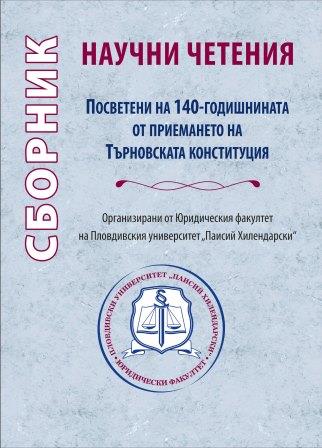
The European Bank Preservation Order, еstablished by Regulation (EU) No 655/2014, as an alternative to existing legal procedures in each EU Member State. The procedure facilitates EU debt collection and serves as an additional safeguard in cross-border debt recovery in civil and commercial matters. This statement aims to guide finding the competent authorities for issuing a European Bank Account Preservation Order. Competent authorities under the procedure for implementing Regulation (EU) No 655/2014 can be distinguished in several directions: I. Competent authorities for issuing of the preservation order; II. Competent enforcement authorities; III. Courts or enforcement authorities competent to provide remedies;IV. Competent authorities with which an appeal is to be lodged; V. Others.
More...
The purpose of this scientific report is to briefly outline the main points relating to the form of the jurisdiction clause in international civil and commercial matters with regard to the arrangements contained in EU law. Part of the relevant case law of the Court of Justice of the European Union has been discussed, analyzing some of the most recent rulings interpreting the legal framework.In this regard, the report provides guidance to law enforcement authorities on the basic principles and understandings that must be taken into account when assessing their international competence arising from an agreement between the parties.
More...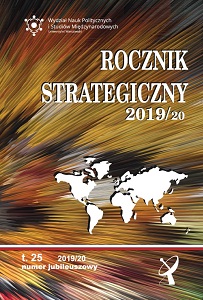



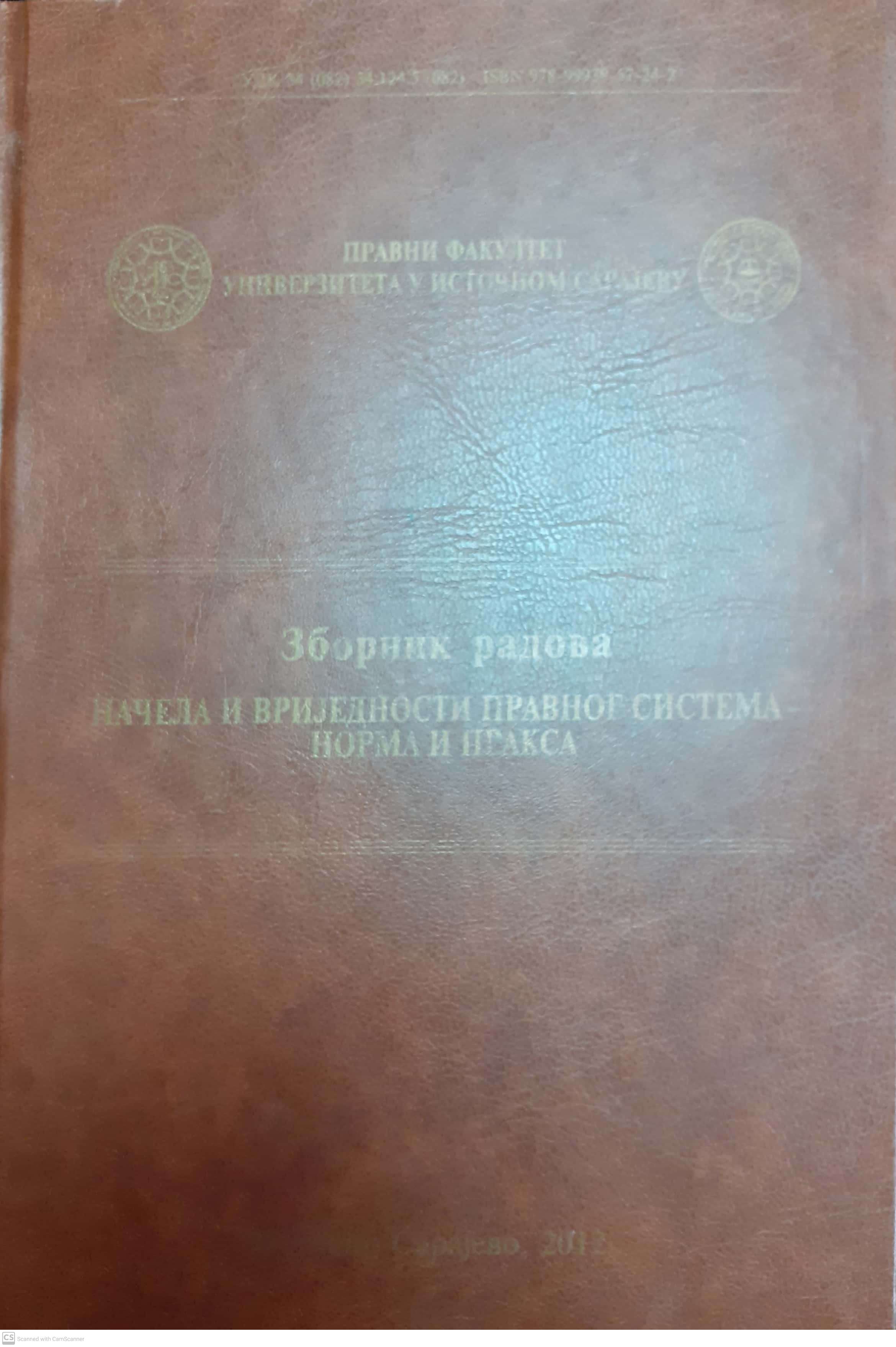
The author deals with the relationship between the Vatican, through its system of legal and ethical values, to women and Jews. Then the relationship of law and ethics is transferred to the field of modern society, considering the different views of the genocide, some of which are unethical and based on a distinctive conception of genocide in the light of political and ideological needs.
More...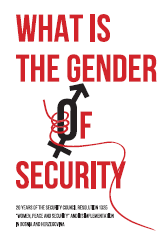
Although the feminist movement should not be restricted solely to the struggle for women’s suffrage (passive and active suffrage, in other words, the right to vote and stand in the elections), acquisition of the status of political entity, regardless of all theoretical discrepancies between different forms of feminism, remains its lasting feature. The first argumentation of necessity of women’s involvement in political sphere was carved out within the framework of the liberal political philosophy on the foundations of its principles of equality of all human beings and was thus formulated as a call for participation of women in political life, on an equal footing with men. However, the actual equality has not been accomplished after women won these rights, and the anticipated societal changes failed to materialise.
More...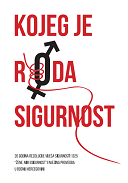
Iako je pogrešno feministički pokret svesti isključivo na borbu žena za osvajanje punog prava glasa (i pasivnog i aktivnog prava glasa, odnosno i prava da bira i da bude birana), sticanje statusa političkog subjekta – bez obzira na sve teorijske diskrepancije feminizama – njegovo je kontinuirano obilježje. Prva argumentacija za nužnost uključivanja žena u političku sferu isklesana je u okviru liberalne političke filozofije i na temeljima njenih postulata o jednakopravnosti svih ljudskih bića te formulisana kao zahtjev da žene ravnopravno s muškarcima učestvuju u političkom životu. Ipak, ova ravnopravnost generalno nije postignuta nakon osvajanja prava niti su se desile očekivane društvene promjene.
More...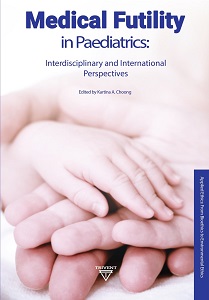
This chapter aims to look at the debate from an Islamic legal (fiqh) perspective and present how Muslim parents could ensure that their attempt to discharge parental responsibility can become compatible with religious instruction, in a context where the value base to evaluate medical futility (i.e. to continue medical treatment or not), is determined by medics and the state, rather than any religious underpinning. To this end, this chapter aims to discuss the Islamic theory and practice on this subject: (1) What is the scope of parental rights and responsibilities in Islam (i.e. theory)?; and (2) How would Islamic fiqh (or legal formulations) guide parental thinking in such situations (i.e. practice)?
More...